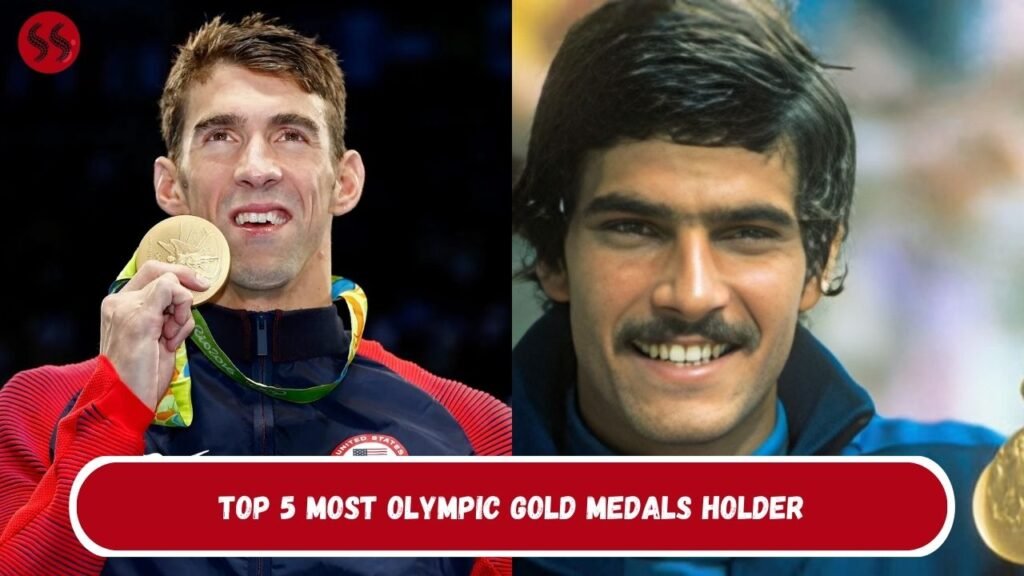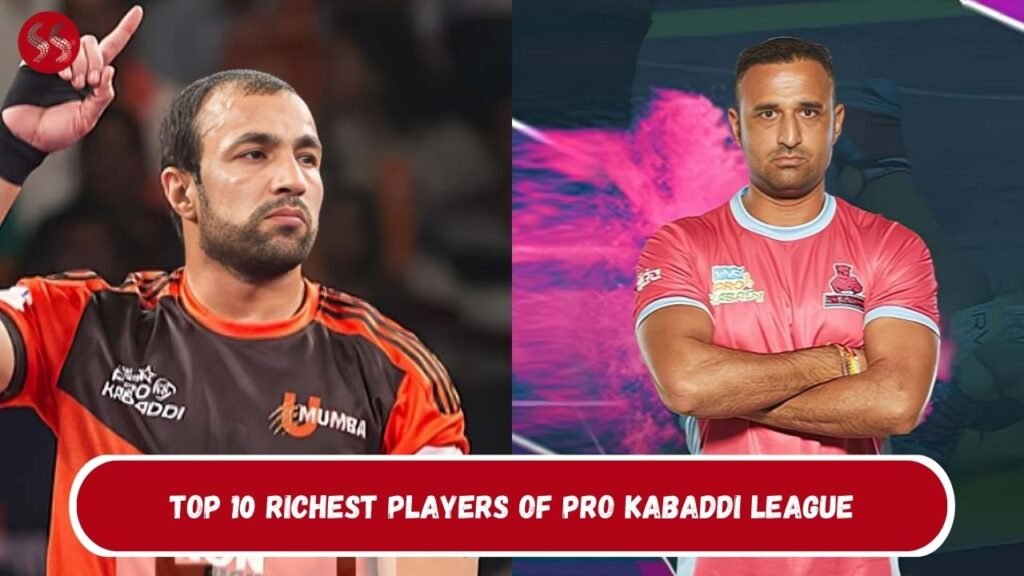The difference between a good athlete and a great athlete is often not physical, but mental. While hours in the gym or on the field can build muscle and refine technique, it’s the mind that truly dictates performance under pressure. The mental game is a strategic battle fought long before the whistle blows, a contest of confidence, focus, and resilience. For too long, athletes focused solely on their physical conditioning, but modern sports have proven that a winning mindset is the ultimate competitive advantage.
This is where the powerful field of sports psychology comes into play, offering a set of proven techniques to help athletes perform at their peak. This definitive guide to the Top 10 Sports Psychology hacks is your roadmap to building the mental toughness of a champion.
Sports psychology is the art and science of helping athletes unlock their full potential by training their minds. It’s about turning weaknesses into strengths, managing anxiety, and finding a state of peak performance when it matters most. It is not about magic or quick fixes, but a disciplined approach to mental training that mirrors the dedication you put into physical training. From the world’s most elite Olympians to aspiring local competitors, the principles of sports psychology are accessible to anyone who wants to gain a mental edge.
This comprehensive list of the Top 10 Sports Psychology hacks will break down the strategies used by the best in the world, giving you the tools to overcome mental obstacles and achieve your goals. This is why this is the ultimate guide to the Top 10 Sports Psychology hacks.
10. The Power of Positive Self-Talk

Positive self-talk is one of the most fundamental tools in sports psychology. It involves consciously using encouraging and constructive internal dialogue to motivate yourself and build confidence. Instead of saying, “I can’t do this,” you reframe it as, “I’ve trained for this, and I am ready.” This simple shift can dramatically change your mental state, helping you to stay focused and resilient, which is why it is a key entry among the Top 10 Sports Psychology.
Negative self-talk can be a performance killer. It creates a self-fulfilling prophecy of failure and can undermine years of hard work. By training yourself to use positive self-talk, you are essentially programming your mind for success. This mental discipline is a learned skill that requires consistent practice, just like a physical technique. Mastering this hack is a foundational step in your mental training journey. This is a crucial element of the Top 10 Sports Psychology.
| Stat | A study of collegiate athletes found that those who used positive self-talk consistently performed better in competition than those who did not. |
9. Mastering the Art of Visualization

Visualization, also known as mental rehearsal, is a powerful technique used by elite athletes to mentally practice their performance. It involves creating a detailed, vivid mental image of a successful outcome. You don’t just see yourself scoring the goal; you feel the moment, hear the crowd, and smell the grass. This immersive mental training can prepare your mind and body for the real event, which is why it is one of the most effective of the Top 10 Sports Psychology.
The brain has a difficult time distinguishing between a vividly imagined event and a real one. By visualizing success, you are creating neural pathways that make the physical execution of a skill easier and more fluid. It builds confidence and reduces anxiety because you’ve already “done” it in your mind. This is a cornerstone of any serious mental training program. This is why it is a must-learn hack for the Top 10 Sports Psychology.
| Stat | A famous study on free-throw shooting found that a group that only visualized making shots improved their performance by a remarkable 23%. |
8. Setting SMART Goals

Goal setting is a universal principle of success, but in sports psychology, it is a highly structured process. The best athletes set SMART goals: Specific, Measurable, Achievable, Relevant, and Time-bound. This approach provides a clear roadmap for progress and keeps you motivated. Instead of a vague goal like “get better,” you would set a SMART goal like “improve my free-throw percentage to 85% by the end of the season.” This is a key part of the Top 10 Sports Psychology.
SMART goals help you break down a large, overwhelming objective into smaller, manageable steps. This process not only makes the goal feel more attainable but also allows you to track your progress and celebrate small victories along the way. This structured approach to goal setting is what separates a champion from a dreamer. This is a crucial element of the Top 10 Sports Psychology.
| Stat | Athletes who set specific, challenging goals perform on average 15% better than those who set general or no goals. |
7. The Pregame Routine

A consistent pregame routine is a powerful psychological tool used to reduce anxiety and prepare for a performance. It is a series of actions—stretching, listening to a specific playlist, or meditating—that an athlete performs before every game or competition. This routine signals to the brain that it’s time to focus and perform, which is why it is a vital entry among the Top 10 Sports Psychology.
The routine provides a sense of control in a chaotic environment. It helps to calm the nerves and to create a predictable pathway to a state of peak performance. The repetition of the routine helps to build confidence and to reduce the element of surprise. This is an essential part of the Top 10 Sports Psychology. The routine is a powerful hack in the Top 10 Sports Psychology.
| Stat | Over 75% of elite athletes report having a consistent pregame routine that they believe helps them perform at their best |
6. The “Next Play” Mentality

The “next play” mentality is a psychological hack that teaches athletes to move on from mistakes immediately. Instead of dwelling on a missed shot, a dropped pass, or a bad call, you focus all your energy on the next opportunity. This ability to let go of the past and to live in the present is a hallmark of mental toughness. This is a key entry among the Top 10 Sports Psychology.
Dwelling on a mistake can lead to a cascade of errors and a loss of confidence. The “next play” mentality helps you to stay in the moment and to not let a single mistake define your performance. This is a learned skill that requires a great deal of self-discipline. Mastering this hack is a crucial element of the Top 10 Sports Psychology. The ability to move on is a defining part of the Top 10 Sports Psychology.
| Stat | Studies show that athletes who can quickly “re-set” after a mistake are less likely to make a second consecutive error |
See More:
5. Using Mindfulness to Stay Present

Mindfulness is the practice of being fully present and aware of the current moment. In sports, this means being aware of your body, your opponent, and the environment without judgment. It helps you to tune out distractions and to stay focused on the task at hand. This is a key entry among the Top 10 Sports Psychology.
Mindfulness helps you to manage performance anxiety by bringing your attention away from future worries or past mistakes and into the present moment. By focusing on your breathing and your body, you can calm your nerves and to stay in a state of peak performance. This is a crucial element of the Top 10 Sports Psychology. The mental clarity gained is a powerful part of the Top 10 Sports Psychology.
| Stat | A study of collegiate athletes found that a mindfulness training program improved their focus and reduced their pre-competition anxiety by over 20%. |
4. The Power of “Chunking”

“Chunking” is a mental hack that involves breaking down a complex skill or task into smaller, more manageable parts. Instead of focusing on the entire task, you focus on one small part at a time. For a swimmer, this could mean focusing on the kick for one lap, the pull for the next, and the breathing for the third. This is a key entry among the Top 10 Sports Psychology.
Chunking makes complex tasks feel more attainable and less overwhelming. It allows you to build a skill from the ground up, perfecting each small part before putting it all together. This process builds confidence and mastery. It is a crucial element of the Top 10 Sports Psychology. The systematic approach is a defining part of the Top 10 Sports Psychology.
| Stat | Research has shown that learning a complex motor skill by “chunking” it into smaller components can increase learning speed by up to 50%. |
3. The “If-Then” Rule

The “if-then” rule is a simple yet powerful psychological hack used to create a plan for unexpected events. It involves creating a mental script for a difficult situation. For example, “If I miss my first serve, then I will take a deep breath and visualize my next serve.” This pre-planning helps you to react to a situation calmly and confidently, which is why it is a vital entry among the Top 10 Sports Psychology.
The “if-then” rule helps to reduce performance anxiety by preparing you for a difficult situation before it happens. It gives you a sense of control and a clear plan of action, even in a high-pressure environment. This is an essential part of the Top 10 Sports Psychology. The pre-planning aspect is a powerful hack in the Top 10 Sports Psychology.
| Stat | Athletes who use “if-then” plans are more likely to execute their game plan under pressure and less likely to choke. |
2. Finding Your “Performance State”

Finding your “performance state” is a mental hack that involves understanding what emotional and physical state you need to be in to perform at your best. For some, it is a state of calm and focus; for others, it is a state of high energy and aggression. By understanding your optimal state, you can use mental hacks to get there before every performance. This is a key entry among the Top 10 Sports Psychology.
Finding your performance state is a process of self-discovery and requires a great deal of self-awareness. It involves understanding your own emotional triggers and learning how to manage them. This is an essential part of the Top 10 Sports Psychology. The self-awareness gained is a powerful part of the Top 10 Sports Psychology.
| Stat | Researchers have found that athletes who can consistently get into their “optimal performance state” perform at a level 15% higher than their average. |
1. The Power of Gratitude

Gratitude is a powerful psychological tool that can help you to stay positive and to maintain a winning mindset. It involves focusing on what you are grateful for, such as your health, your teammates, and the opportunity to compete. This simple practice can help you to stay motivated and to not get bogged down by negativity. This is a crucial entry among the Top 10 Sports Psychology.
Gratitude helps to reframe your mindset from one of scarcity to one of abundance. It helps you to appreciate the journey and not just the outcome. This is an essential part of the Top 10 Sports Psychology. The mental shift is a powerful hack in the Top 10 Sports Psychology. The practice of gratitude is a cornerstone of any serious mental training program. This is a key part of the Top 10 Sports Psychology.
| Stat | A study of collegiate athletes found that those who kept a gratitude journal had higher levels of positive emotions and were more resilient in the face of setbacks. |
FAQs
Q1: Can sports psychology help a beginner?
A1: Yes, sports psychology can help a beginner by teaching them the fundamentals of a winning mindset, such as positive self-talk and goal setting, a key reason why it is a part of the Top 10 Sports Psychology.
Q2: Is sports psychology only for elite athletes?
A2: No, sports psychology is for anyone who wants to improve their mental game, regardless of their skill level, a key fact about the Top 10 Sports Psychology.
Q3: What is the most important sports psychology hack?
A3: The most important sports psychology hack is positive self-talk, as it is the foundation for all other mental training, a crucial part of the Top 10 Sports Psychology.
Read More :


